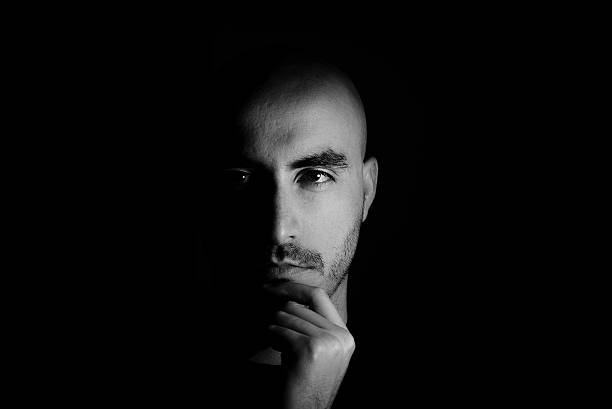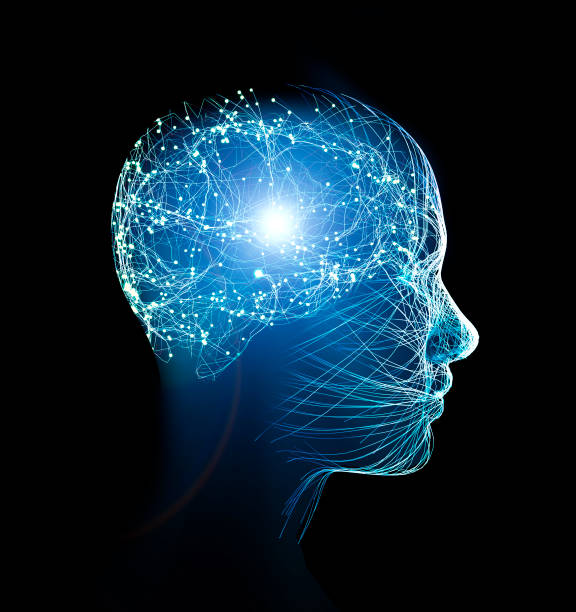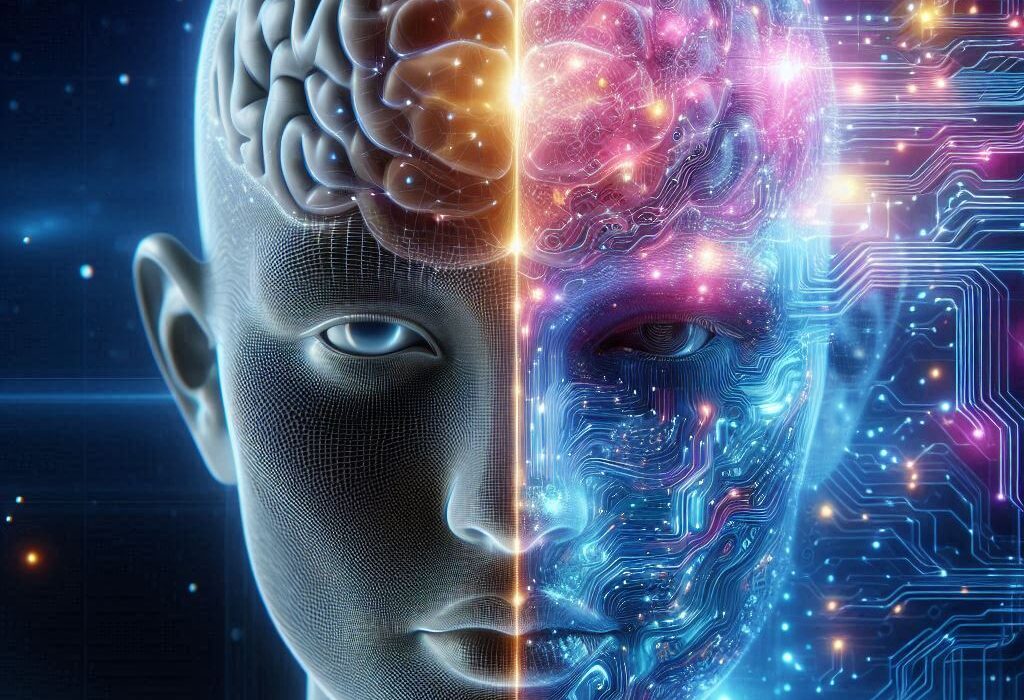Every day, you hear them.
One says, “Think it through.” The other whispers, “Feel it out.” One tells you to take a breath and weigh the consequences. The other screams, “Do something, now!”
It’s a familiar tug-of-war. The voice of reason squaring off against a surge of feeling. Your heart pounding one rhythm, your mind drumming another.
You call it indecision. Conflict. Being torn. But underneath it all, something extraordinary is happening—a biological symphony played by the most complex organ in the universe.
Your brain is not just a thinking machine. It is a deeply emotional, wildly intuitive, and often contradictory command center. It doesn’t divide neatly into logic and emotion. Instead, it balances them in a delicate dance that shapes every thought, every choice, every heartbeat.
And the truth is, logic and emotion are not enemies. They are partners—sometimes at odds, sometimes in harmony—always co-creating the story of your life.
The Myth of the Rational Mind
We like to believe we’re logical creatures who sometimes feel. The truth is closer to the opposite.
Centuries of philosophical and scientific thinking, especially in Western culture, elevated rationality as the pinnacle of human evolution. Emotions were seen as obstacles—messy, irrational, primitive things we had to rise above.
But neuroscience has dismantled that myth.
In 1994, neuroscientist Antonio Damasio published findings that shocked the scientific world. He studied patients with damage to the part of the brain that processes emotion—the ventromedial prefrontal cortex. These individuals retained perfect logic. They could do math, remember facts, and even predict consequences.
But they couldn’t make decisions.
They would spend hours debating trivial choices—what to wear, what to eat. Without emotional input, nothing felt more important than anything else. They could reason, but they couldn’t choose. Because emotion, it turns out, isn’t the enemy of logic—it’s the compass that gives logic direction.
Without feeling, thinking loses purpose.
Emotion: The Brain’s First Language
Long before the neocortex evolved—the part of your brain responsible for language, reasoning, and abstract thought—your brain already knew how to feel.
Deep in the limbic system, structures like the amygdala and hypothalamus evolved to detect danger, trigger fear, seek pleasure, remember pain. These emotional centers developed not to weaken us, but to protect us. To help us survive. To ensure we reacted fast when it mattered most.
You feel before you think. Every external stimulus—an image, a sound, a face—first passes through emotional processing centers before it ever reaches your rational brain.
This is why a smell can transport you to childhood before you even know what you’re smelling. Why a sudden sound makes you jump before you identify it. Why you might dislike someone without knowing why.
Your emotional brain is constantly scanning, reacting, predicting.
And then logic shows up—late to the party—trying to make sense of it all.
Logic: The Architect of Possibility
Logic lives in the prefrontal cortex—the sleek, evolved front part of your brain behind your forehead. This is where planning, analysis, moral judgment, and impulse control happen. It’s the reason you file your taxes, delay gratification, or walk away from someone you still love because you know they’re no good for you.
Logic is what lets you see the bigger picture. It maps out the future. It considers consequences, builds models of reality, and evaluates risks. It is, quite literally, what separates humans from most other species.
But logic alone is not enough.
If emotion is the spark, logic is the engineer. Without emotion, logic has no urgency. Without logic, emotion has no structure.
To live wisely, your brain needs both.
The Dance Between Systems
Psychologist Daniel Kahneman, in his groundbreaking work Thinking, Fast and Slow, described two modes of thinking.
“System 1” is fast, emotional, intuitive. It’s what helps you swerve in traffic or laugh at a joke.
“System 2” is slow, deliberate, analytical. It’s what helps you solve a math problem or write a thoughtful email.
These systems aren’t isolated. They overlap constantly. Your brain switches between them, blending intuition with logic, gut with reason.
But here’s the twist: System 1 often leads the way. It decides, reacts, feels. Then System 2 steps in to justify or refine. You don’t always choose your thoughts—you often feel them first, and then rationalize them.
That doesn’t make you irrational. It makes you human.
When Logic and Emotion Collide
Sometimes, the systems don’t sync. You love someone who hurts you. You fear something that’s statistically safe. You believe something with all your heart, even when the facts say otherwise.
This conflict shows up in your brain as competing neural pathways. The amygdala fires with urgency. The prefrontal cortex counsels restraint. Your body floods with stress hormones. Your thoughts loop in indecision.
This is not weakness. It’s the brain working overtime—trying to reconcile two powerful truths.
Sometimes, emotion is right. Sometimes, logic is. Wisdom lies in learning to listen to both.
Emotion Fuels Meaning
Imagine your most vivid memories. The birth of a child. The betrayal of a friend. A moment of public triumph or private grief. What makes them unforgettable isn’t the logic—it’s the emotion.
Emotion cements memory. It deepens meaning. When you feel strongly, your brain releases chemicals like norepinephrine and dopamine that tag those moments as significant.
This is why you remember where you were when tragedy struck. Why a song can break your heart a decade later. Why a compliment from childhood still warms you.
Logic may guide decisions. But emotion gives life color.
And when the two align—when you feel that a choice is right and can explain why—it creates something powerful: conviction.
The Bias Beneath the Surface
Your brain wants to be efficient. So it builds shortcuts. Unfortunately, those shortcuts—called cognitive biases—are deeply emotional.
Confirmation bias, for instance, makes you seek information that agrees with what you already believe. Negativity bias makes you weigh bad news more heavily than good. The availability heuristic makes you overestimate the likelihood of events you can easily recall—like plane crashes or shark attacks.
These biases aren’t logical. They’re emotional habits, wired for survival.
Understanding them doesn’t make you immune—but it does help you see when your emotions are shaping your logic, and not the other way around.
The Role of Emotion in Morality
Morality feels logical. Fairness. Justice. Ethics. But dig deeper, and you’ll find that morality is often rooted in emotional reactions—disgust, empathy, guilt, loyalty.
Research shows that moral decisions often begin with emotion. You feel that something is wrong. Then you justify it. This doesn’t make your values invalid. It simply reveals the emotional core of your ethics.
Empathy, in particular, bridges the gap between logic and emotion. It lets you imagine someone else’s experience—and motivates you to act with compassion. Without empathy, morality becomes cold calculation. Without reason, empathy can lead to burnout or misguided help.
True moral action, like wise decision-making, arises from balance.
Stress: The Disruptor of Balance
When you’re stressed, your brain changes. Blood flow decreases to the prefrontal cortex. The amygdala takes over. You become reactive, impulsive, tunnel-visioned.
This isn’t personal. It’s survival.
In danger, your brain doesn’t want analysis. It wants action. So it shuts down logical centers and ramps up emotional ones.
But in modern life, stress isn’t just lions or gunshots. It’s emails, deadlines, breakups, traffic, news. Chronic stress keeps your brain in a loop of overreaction, making it harder to think clearly.
Learning to regulate stress—through breath, rest, mindfulness, connection—isn’t just self-care. It’s brain care. It restores the balance between logic and emotion.
Gender, Culture, and the Logic-Emotion Divide
We’re often told that men are logical and women are emotional. That Western cultures prize reason, while Eastern ones embrace feeling.
These stereotypes contain slivers of truth—but also deep misconceptions.
Neurologically, all human brains are capable of logic and emotion. Differences in expression often reflect social conditioning more than biology.
In many cultures, boys are taught to suppress feeling. Girls are taught to amplify it. But when you silence one system, the other suffers. Men raised to ignore emotion often struggle with connection. Women trained to distrust logic often second-guess themselves.
True strength comes from integration—not polarization.
Healing the Divide Within
You’ve been told to choose: logic or emotion. But your brain is begging for balance.
Healing comes when you stop viewing emotions as weaknesses and logic as coldness. When you stop swinging between extremes and start creating dialogue between your head and your heart.
That means feeling your feelings—but not letting them drive every decision. It means thinking things through—but not using logic to numb your soul.
It means asking not just “What makes sense?” but “What feels true?” Not just “What do I want?” but “What will matter tomorrow?”
This inner conversation takes practice. It takes silence. It takes failure. But it’s the foundation of emotional intelligence, self-awareness, and wise living.
The Brain’s Secret: Integration Is the Goal
In truth, your brain is not divided. It’s integrated.
The best decisions come from both hemispheres, all regions—emotion and reason, instinct and reflection, intuition and analysis.
When your brain is working well, these systems don’t fight. They collaborate.
Emotion gives logic urgency. Logic gives emotion clarity. Together, they create resonance.
This is the sweet spot of creativity, leadership, love, and resilience. This is what it means to be fully human.
Your Brain, Your Life, Your Balance
So the next time you feel torn between heart and head, know this: you are not broken. You are not indecisive. You are not weak.
You are a living contradiction. A masterpiece of complexity. A thinking, feeling miracle navigating a world that demands both logic and emotion.
Trust that.
Honor both voices.
Let them guide you—not in opposition, but in harmony.
Because when the mind listens to the heart, and the heart trusts the mind, something extraordinary happens:
You come home to yourself.






